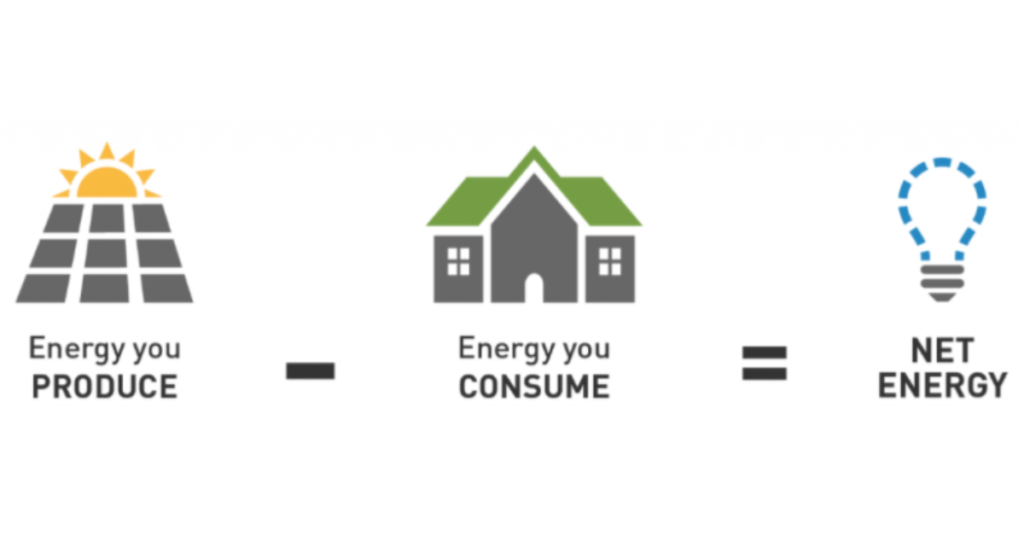Introduction
Arizona, known for its abundant sunshine, offers an excellent opportunity for property owners to harness clean and renewable solar energy. Solar power in Arizona can be financially beneficial and environmentally friendly thanks to various state and federal incentives.
Our blog post will cover Arizona’s solar incentives, including tax credits, utility programs, and net metering policies. You’ll gain valuable insights to help you make informed decisions about investing in home solar systems.
Overview Of Arizona Solar Incentives
Arizona offers a variety of incentives for homeowners to take advantage of solar power. This includes tax credits, utility incentives, net metering, SRECs, and property and sales tax exemptions. Our blog post will explain how to benefit from these incentives and explore additional programs available in the state. If you want to save money on energy costs while reducing your carbon footprint, keep reading!
Federal Tax Credits
Thanks to the available federal tax credits, investing in solar power for your Arizona property has never been more appealing. The Federal Solar Investment Tax Credit (ITC) enables homeowners to claim a significant percentage of their solar installation costs as a credit against their income taxes.
For example, if you invest $20,000 in installing solar panels on your home, the federal tax credit will amount to an impressive $5,200 in savings. This incentive makes it even more attractive for Arizona property owners to switch to clean energy sources and reduce their carbon footprint and utility bills.
State Tax Credits
Arizona homeowners can benefit from state tax credits such as the Arizona Residential Solar and Wind Energy Systems Tax Credit. This offers a personal income tax credit of up to 25% of the total cost for qualifying solar panels installed on residential property.
This means homeowners can receive up to $1,000 in personal income tax reduction for installing a solar system. It’s important to remember that these credits have limits. They may be subject to change. It’s best to stay informed about current policies and incentives when investing in solar energy for your home.
Utility Company Incentives
Utility companies in Arizona offer incentives to encourage homeowners to switch to solar energy. For example, through APS’s Residential Energy Efficiency Rebate Program, customers can receive rebates for purchasing energy-efficient equipment such as HVAC systems and insulation.
The Solar Electric System Incentive Program by Salt River Project (SRP) offers customers up to $1,000 per kilowatt installed solar power capacity.
Net Metering
Net metering is a crucial aspect of solar incentives in Arizona. It enables homeowners who have installed a solar power system to receive credits for any excess electricity they generate. Solar excess goes to the grid and credits the homeowner. Credits can offset the costs of traditional power.
Solar Renewable Energy Credits (SRECs)
Another incentive that can benefit Arizona homeowners who invest in solar energy systems is the Solar Renewable Energy Credits (SRECs). These are certificates earned for every megawatt-hour of electricity a solar energy system produces. Homeowners can sell SRECs to meet renewable energy requirements and earn extra income. For example, 10 SRECs at $50 each equal $500.
Property Tax Exemption
Arizona property owners investing in solar energy may qualify for property tax exemptions. This means that the value solar panels add to your property will not be considered when calculating your property taxes.
This can significantly save over time, reducing your overall tax bill by thousands of dollars. For example, installing an average-sized 5-kilowatt solar panel system on your home valued at $20,000 could save you around $400 per year on taxes alone.
Sales Tax Exemption
Arizona offers a sales tax exemption for homeowners who install a solar energy system. Homeowners can save money on upfront costs by not paying sales tax on solar panel purchases and installation.
For example, if a homeowner purchases $10,000 worth of solar panels and equipment for their home, they would typically pay an additional 5.6% ($560) in sales tax. With Arizona’s sales tax exemption, they would save that $560, which could be put towards other expenses or invested back into the solar system itself.
Solar Water Heating Systems
Arizona property owners can lower energy bills and carbon footprint with solar water heating systems. These systems use panels to collect heat from the sun, which then heats up water for use throughout the home. Solar water heaters save money and reduce emissions. Rebates and incentives are available to the lower installation cost.
Energy-Efficient Home Improvements
Energy-efficient home improvements help property owners save on utility bills and reduce their carbon footprint. These improvements include upgrading insulation, sealing air leaks, upgrading windows and doors, installing efficient lighting fixtures, and upgrading appliances.
Energy-efficient upgrades can also make homeowners eligible for tax credits and incentives. These incentives can help offset the costs of upgrades like solar panel installations or HVAC replacements.

How To Take Advantage Of Arizona Solar Incentives
Research solar options, find a reputable installer, and explore tax credits and rebates. Monitor energy production and savings, and consider financing.
Research Solar Panel Options And Prices
Research and compare solar panel options before purchasing to find the best fit. Here are some steps to take when researching solar panel options and prices:
- Consider your energy needs: Determine your average monthly energy usage to help determine the size and output of the solar panel system you need.
- Research solar panel brands: Look up reputable brands known for their quality products and read reviews from previous customers.
- Compare prices: Get quotes from several solar installers to compare prices and services.
- Explore financing options: Check if any financing options are available through the installer or government programs.
- Check warranties: Make sure the solar panels come with a warranty that covers any damages or issues that may arise.
- Look into installation requirements: Ensure that your property meets all installation requirements, such as roof condition and orientation, before committing to a specific system.
By researching, comparing prices, and exploring financing options, you can make an informed decision on which solar panel system is best for you while taking advantage of available incentives in Arizona.
Find A Reputable Solar Installer
When installing a solar energy system in Arizona, finding a reputable and experienced installer is important. Look for licensed, insured, and certified installers by industry organizations such as the North American Board of Certified Energy Practitioners (NABCEP) and the Solar Energy Industries Association (SEIA).
You can also check online reviews from previous customers or ask for referrals from friends or family members who have installed solar panels in their homes.
Understand Eligibility Requirements
Before taking advantage of Arizona solar incentives, it’s important to understand the eligibility requirements. Here are some key factors to consider:
- Homeownership – To take advantage of most solar incentives in Arizona, you must own the property where the solar energy system will be installed.
- Roof suitability – Your roof must support the weight of a solar panel installation and have sufficient sunlight exposure.
- Energy usage – Your property should have high energy consumption levels to see significant savings from a solar energy system.
- Installation by a licensed professional – Many incentives require installing solar panels by a licensed professional who meets certain criteria.
- Tax liability – To benefit from tax credits and deductions, you must have a sufficient tax liability to claim them on your tax return.
- State residency – Some incentives may only be available to Arizona residents, so make sure you are eligible before applying.
By understanding these eligibility requirements, you can determine if going solar is right for your property and take advantage of all available incentives. Remember that state and federal incentives may have different criteria, so reviewing each program’s requirements carefully before applying is important.
Explore And Apply For Tax Credits And Rebates
One of the most significant benefits of installing a solar energy system in Arizona is the availability of tax credits and rebates. Homeowners can explore federal and state incentives to reduce the cost of purchasing and installing solar panels.
For instance, Arizona offers a 25% state solar tax credit for purchased home solar systems, with up to a $1,000 personal income tax reduction. Additionally, homeowners can take advantage of the Federal Solar Investment Tax Credit program that allows them to deduct 26% of their solar installation costs from their federal taxes.

Monitor Your Energy Production And Savings
Monitoring your energy production and savings is essential to maximizing Arizona’s solar incentives. Here are some tips:
- Keep track of your energy usage: Use an app or a monitoring system to track and analyze how much energy your solar panels produce, how much you consume, and how much you save.
- Monitor your savings: Calculate your monthly utility bills before and after your solar panel installation to see how much you save on electricity costs.
- Check for malfunctions: Regularly check if all solar panels are working correctly or if any issues require maintenance or repair.
- Take advantage of net metering: Any excess energy generated by your solar panel system can be sent back to the grid and credited to your account, so keep an eye on this.
- Get help when needed: If you need help monitoring your energy production or savings, contact your solar panel installer or utility company.
By monitoring and analyzing your energy production and savings regularly, you can ensure that you get the most out of Arizona’s various solar incentives.
Consider Financing Options
If you’re considering installing a solar energy system on your property, it’s essential to think about financing options. While the upfront cost of purchasing and installing solar panels may seem steep, several financing choices can make going solar more affordable.
For example, many installers offer loan programs or lease agreements that allow you to pay for your solar system over time rather than all at once.
Another option is power purchase agreements (PPAs), which enable homeowners to lease their roof space to a third-party provider who installs and maintains the system in exchange for selling them the electricity generated by the panels at a reduced rate compared to what they would have paid from their utility company.
PPAs typically require little or no up-front costs and can provide immediate savings on your monthly electric bill.
Other Arizona Solar Programs
In addition to the various solar incentives available, Arizona also offers other programs such as the No-Cost Solar Program and SRP Solar Incentives.
No-Cost Solar Program
Another way Arizona residents can take advantage of solar incentives is through SRP’s Solar for Non-Profits program, which provides qualifying non-profits with no-cost solar panels.
This program helps organizations reduce their carbon footprint and saves them money on energy bills. Additionally, homeowners interested in installing solar panels but cannot afford the upfront cost may want to explore leasing options or financing programs that offer low-interest rates and flexible payment plans.
SRP Solar Incentives
SRP, or the Salt River Project, offers a variety of solar incentives to homeowners in the Phoenix metropolitan area. These incentives include rebates for installing qualifying solar energy systems and credits for any excess energy generated by those systems.
SRP also provides free technical assistance and support throughout the installation process, making it easier than ever for homeowners to switch to clean energy.
With SRP’s help, Arizona residents can take advantage of state and federal incentives while reducing their carbon footprint and saving money on electricity bills.
Arizona Solar Companies
Arizona has many solar companies to choose from when considering installing a solar energy system. Some of the top-rated options include Tesla, Sunrun, and Vivint Solar.
These companies offer various financing options, such as leasing or purchasing, and they often provide installation and maintenance services. Additionally, smaller local solar installers may offer competitive pricing and personalized services.
Ultimately, it is important to research to find a reputable company that fits your specific needs and budget.
Conclusion And Final Thoughts On Arizona Solar Incentives
In conclusion, Arizona offers a variety of incentives for property owners interested in harnessing the power of solar energy. From tax credits and rebates to net metering and sales tax exemptions, these programs can help make solar panel installation an affordable option.
By taking advantage of these incentives, homeowners can reduce their carbon footprint while saving money on their electric bills. With so many benefits available, it’s no wonder that more and more Arizonans are turning to solar power as a sustainable energy solution.

FAQs:
- What are the solar incentives currently available in Arizona?
Arizona offers several solar incentives, including the Solar Investment Tax Credit (ITC), Renewable Energy Production Tax Credit (REPTC), and the Residential Solar Feed-In Tariff (RFiT). These programs provide financial benefits for installing solar panels on residential and commercial properties.
- How do I qualify for these solar incentives in Arizona?
Eligibility requirements vary depending on the specific program, but generally speaking, you must be a resident of Arizona or a business operating within the state to qualify for these incentives. Additionally, your property needs to meet specific criteria, such as having enough sun exposure to generate sufficient energy from solar panels.
- Can I still participate in utility net metering programs if I take advantage of Arizona’s solar incentives?
Yes. In fact, many homeowners who install solar systems continue participating in their utility company’s net metering program after they begin generating their own electricity through their new installation.
- Are there any other benefits besides financial savings that come with installing a solar system with help from Arizona’s incentive programs?
Yes! You can feel good knowing that by installing a clean energy source like a photovoltaic system, you’re also reducing your carbon footprint and helping protect the environment while improving the air quality around you. Plus – over time -you’ll enjoy lower electric bills thanks to lower usage costs & greater efficiency gained via harnessing renewable resources whenever possible.

